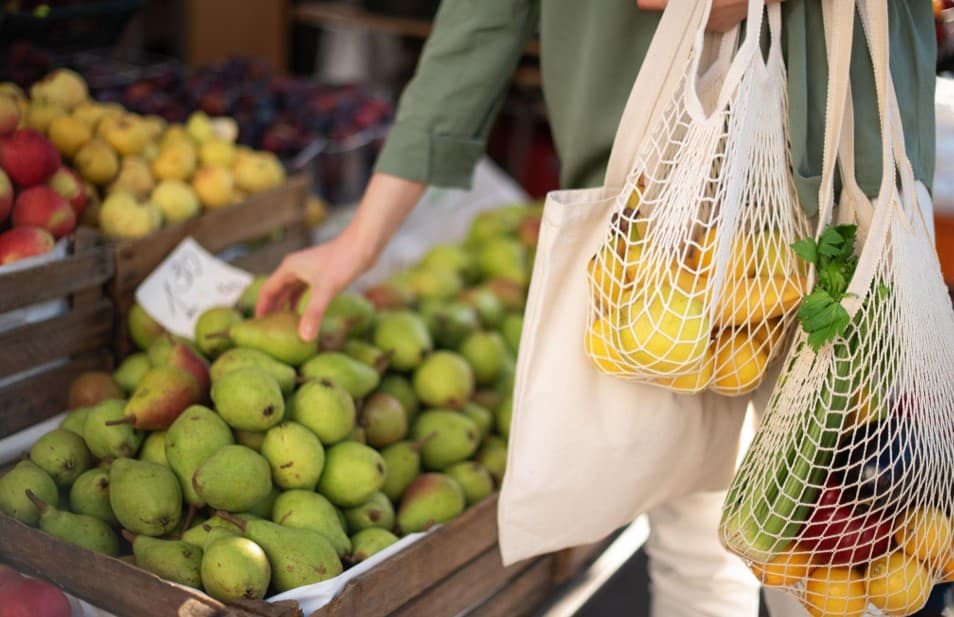
As climate change continues to worsen, more people want to hold themselves accountable for their contribution to the problem. While one person can’t make a difference in the effects of global warming alone, if everyone made a small effort to be more eco-friendly, we could make substantial changes. If you want to do your part to be more eco-friendly, here are a few ways to get you started.
Recycle
When setting out to be more environmentally friendly, the first thing you need to consider is your waste. Most American cities ask households to separate their trash and recycling, so if you aren’t doing so already, ensure you know what can be recycled in your city and you’re correctly disposing of your trash.
If you want to take it a step further, consider adding compost to the mix. Compost is when you take any food or natural waste and separate it from the rest of your trash. Many people use their compost bins to add nutrients to their soil for their gardens and potted plants. In addition to composting, you can also look into specialized recycling plants for things like electronics since most city-run garbage plants aren’t fit to handle those kinds of recycling jobs.
Opt for reusable options
The average household accumulates a lot of trash. From the packaging our products come in, to paper towels, mail, and more, we, as humans have a lot of waste, and that waste isn’t good for the environment.
To reduce the amount of waste you produce, consider switching your single-use items for reusable options. Companies such as Marley’s Monsters develop products to help people be more eco-friendly. You can find reusable alternatives for things like paper towels, cotton pads, Ziplocs, and more that can all help you reduce your waste.
In addition, some grocery stores promote reusable packaging by selling their products in bulk. These stores ask customers to bring reusable items like mason jars to encase the products they purchase. If you hate packaging waste, you might appreciate these “bring your own jar” style grocery stores.
Review your energy usage
You’ve likely heard the term “carbon footprint.” Your carbon footprint measures how much carbon dioxide a person or household releases through the consumption of fossil fuels. A large carbon footprint means you’re using more fossil fuels to provide energy to your home. Whereas a small carbon footprint means the opposite. You want your carbon footprint to be small to help support the environment and be more eco-friendly in your everyday life.
A large carbon footprint applies stress on your area’s power grid, which can lead to more brownouts or blackouts. If you want to reduce your carbon footprint, ensure you turn off lights you aren’t using or open your windows and utilize natural light. Additionally, unplug devices not in use, minimize your use of AC or heating units, ensure you do only full loads of laundry, and do anything else you can do to help reduce energy usage.
Switch to clean energy
Most power grids were installed almost a century ago, and a lot has changed in energy technology. Without using clean sustainable energy, you may find your electric bill is high, especially during the cold months as we use our heaters more. If you’re tired of your sky-high energy bill or want to do your part to support the environment, look into clean energy sources, such as solar panels. Many companies work to provide people with cleaner energy solutions and help them reduce their carbon footprint, so this could be your next step in your goal to be more eco-friendly.
Make mindful purchases
Studies have shown that the fashion industry accounts for 10% of all global emissions, and that’s just one product industry. While we aren’t responsible for the number of waste businesses and manufacturers generate, we can do our part to penalize them for it.
Instead of going crazy on shopping sprees, make more mindful purchases moving forward. Companies tend to overproduce products and send products that can’t sell straight to landfills. To help discourage these practices, making mindful purchases can prevent companies from overproducing. Mindful shopping may also look like reducing your spending, buying reusable products, or opting for businesses that use eco-friendly packaging. You can also bring your reusable bags with you when you know you’ll be doing some shopping. You’d be surprised how many companies are eco-conscious and have amazing products made with sustainability in mind such as sustainable eau de parfum, soaps, alcohol, scrubbers, hygiene products, and more.
Buy second-hand

As we mentioned before, the fashion industry produces a ton of waste. Instead of purchasing brand-new products, consider looking into second-hand alternatives. When you buy a used item, that’s one less thing that will end up in the landfill, and can save you money.
Secondhand provides the world with both environmental and social benefits while also helping to reduce carbon emissions, water usage, and reduce the energy used in the manufacturing process.
Eat Healthy and Sustainably
The way that you shop for food has a direct impact on the environment. Eating healthy and sustainably sourced foods are not only great for your body’s health, but is also great for the health of the planet. Unsustainable farming can lead to deforestation, soil degradation, and harmful gas emissions that are detrimental to the environment. Do your research and find food sources near you that are mindful about how they source their foods. Try to shop local too, often farmers markets in your local area are full of unprocessed organic produce that is both healthy and helps preserve our natural resources.
Donate
Earlier we said when setting out on your journey to be more eco-friendly, you needed to start by looking at your trash and recycling method. One alternative to tossing your items in the bin is donating them instead. Whether you’re doing your yearly spring cleaning, or just trying to clear out the garage, one person’s trash may be another person’s treasure, so look for donation centers to dispose of your items instead of sending them to an at-capacity landfill. Not only is donating more environmentally friendly, but it also has added social benefits by providing items to those in need.
Hang-dry
When you use your dryer, you use a ton of energy to dry your clothes. Instead of running your dryer for an hour, consider drying your clothes the old-fashioned way; by a clothesline. While it may take a bit longer, hanging your clothes to dry uses no energy and can help to reduce your carbon footprint.
Eco-friendly practices
With a little effort, you can make big changes and do your part to support the environment and the life that inhabits it. Whether you reduce your waste, switch to clean energy, use carbon utilization technology or find reusable alternatives to the products you use, you can make a big impact by reducing your carbon footprint.
Author Bio
Katie Brenneman is a passionate writer specializing in lifestyle, mental health, and fitness-related content. When she isn’t writing, you can find her with her nose buried in a book or hiking with her dog, Charlie. To connect with Katie, you can follow her on Twitter.
NutriFusion
NutriFusion develops all‐natural fruit and vegetable powders that are nutrient dense for when you do not have access to fresh produce…and even when you do to improve your vitamin intake. Sourcing only whole, non-GMO foods, NutriFusion offers consumers a concentrated micronutrient and phytonutrient-rich food ingredient blends. With a farm-to-table philosophy, NutriFusion’s proprietary process stabilizes the nutrients from perishable fruits and vegetables, allowing a longer shelf life and access to vital nutrients.
NutriFusion fruit and/or vegetable powders are for use in foods, beverages, supplements, and pet foods.
NutriFusion can help! Visit us at www.nutrifusion.com.



